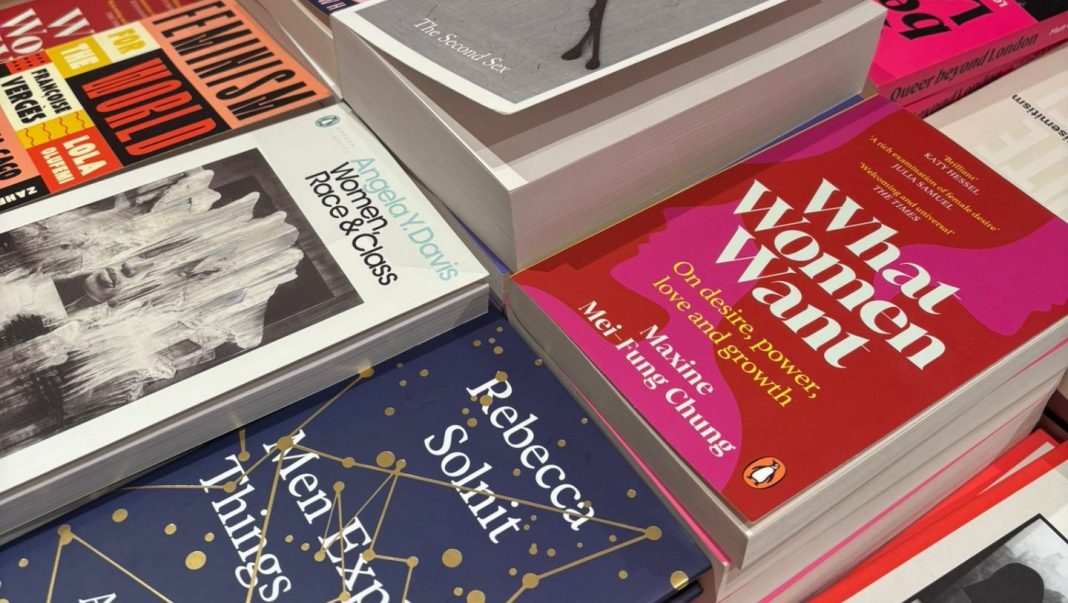Over the past year, I’ve spent more time in male-dominated spaces than I ever had before. Growing up with a sister, attending an all-girls’ school, and moving in the art, theatre, and music scenes of South London, my world was shaped mostly by women.
My first year of university brought a whole new set of dynamics to navigate – shifting friendships, uncertain first impressions, the trial and error of finding my place. Some of the men I’ve met are now among my closest friends, while others have made me more cautious about taking certain claims at face value. From the latter, I learned something else entirely: you cannot trust a man just because he calls himself a feminist.
At first, this felt like a personal lesson about who I could and couldn’t rely on. But the more time I spent in these circles, the more I realised it was part of something bigger: the way words like feminism can be emptied out when they’re too easy to claim. Of course, this isn’t new – a list as long as my arm of ‘60s activists accused of sexual abuse would say otherwise — but it feels particularly pressing now.
As social media has turned identity into aesthetics and trends, calling yourself a feminist has become less about conviction and more about appearance. This is especially the case in communities where the term is taken as the default. The label works like social camouflage – a quick signal of belonging that shields men from scrutiny, even when their behaviour tells another story.
I began to notice it most in smaller moments – the offhand jokes and comments that hang in the air longer than they should. I initially protested their words through pointed silence, and, when the guilt of my non-confrontation finally forced me to call them out, I would be brushed aside, accused of not understanding the laddish culture of his rougher hometown. As if a postcode could launder the meaning out of the words. As if the fact of his self-proclaimed feminism erases the very real discomfort they are meant to provoke.
And it’s not just the words. It’s hidden in the Instagram account where his grid slips in a corner of a Simone de Beauvoir cover, carefully annotated and underlined. But he still follows a rapper with domestic abuse allegations, Andrew Tate, or a string of bikini models he’d never admit to liking in front of you. It’s the friend who insists he “hates toxic masculinity,” yet calls his ex-girlfriend “psycho” the minute her name comes up. Or the subtle drop in enthusiasm when you’re talking and another man enters the conversation, suddenly the real audience he wants to impress. None of these moments are catastrophic on their own, but together they form a pattern that speaks louder than the label he’s chosen for himself.
The rest is aesthetics. The chivalry in holding doors open or extreme politeness that abruptly vanishes the moment sexual interest is off the table or the ego is bruised. The cigarette, lit just long enough to suggest a pitiable tortured edge, carefully obscuring the comfortable stability of a middle-class upbringing. The sudden, almost indulgent flare of paper-cut anger, sharpened against another man’s misogyny – a release that flatters his feminist credentials even as the violence of the gesture lingers, unsettling, for a more critical eye. These aren’t random quirks; they’re part of a curated brand designed to be read as safe, progressive, and desirable.
But a performance only holds until it doesn’t. Sometimes it’s a flicker – a smile snagging sharp when you tease out a contradiction. Other times it’s a full unravelling: the frantic defensiveness, the voice pitching up like cheap fabric under strain. That reaction isn’t about protecting feminism; it’s about protecting himself, the fast-fashion facade that was always going to fray.
And the truth is, there’s no cost to this label of allyship – at least not in my small social bubble at university. I’m glad, genuinely, that there’s been an increase in discussion and a reduction of stigma around the term “feminist”. That’s not something to be undervalued, especially in the face of rising red-pill and anti-feminist rhetoric. But alongside this comes a troubling ease: men can take on the label without ever having to grapple with what it means, or risk anything by using it. That lack of cost – even the presence of incentives – creates a gap between the safety women are induced to feel around a ‘feminist’ man and the actions those same men sometimes take. And it’s in that gap that the danger lies.
And here’s what I’ve learned most clearly: the moments when a man’s feminism really matters aren’t the ones lit up for display. They’re not in the loud declarations or the carefully crafted performances. They’re in the private spaces – in the dark, where intimacy makes a moment both beautiful and vulnerable. That’s where trust is tested, where instincts and intuition are all you have to go on. And it’s in those spaces that the gap between words and actions shows itself most vividly. Too many of us know what it feels like when the man who called himself a feminist still crosses the line, still ignores a “no”, still believes his desire matters more than your safety. That’s the place where the slogans can’t reach, where the mask slips, and where the cost of misplacing trust becomes something you carry with you. That is why I will never give away that trust freely again. The benefit of hindsight revealed the hollowness behind his words I couldn’t see before.
So, when I say I no longer trust men who call themselves feminists, I don’t mean that there are no men who use this label and truly mean it. Instead, I mean that I have been reminded that trust has to be earned, and as always, actions speak louder than words.


